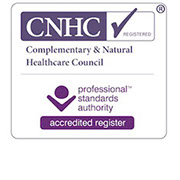Blog
Nutritional Therapy, Anxiety and Panic Attacks
Nutritional therapy focuses on identifying nutritional imbalances, which can affect physiological function and restoring homeostasis.
By looking for the root cause of symptoms, we aim to create balance and optimal health…so how can that help with Anxiety?
Reduced levels of Serotonin are one of the causes of panic attacks and hyperventilation and a Japanese study found that individuals who suffer with anxiety and panic attacks may have low Iron and vitamin B6 levels.
This study describes how diets deficient in these vitamins may be critical to the causation of panic attacks and hyperventilation attacks, which can be triggered from anxiety, stress or depression.
Stress, the western diet and various medical issues may deplete vital nutrients, including B vitamins, which are important for body and brain functions. Deficiencies can result in anxiety, restlessness, fatigue and irritability.
Serotonin is synthesized from tryptophan from our diets and Iron and vitamin B6 are crucial cofactors in this process.
Serotonin, which is our good mood neurotransmitter, often referred to as the happiness hormone, is then further converted into melatonin – which tells us its time for sleep.
Serotonin, a neurotransmitter of the central nervous system, is made minimally in the brain (5%) with an estimated 95% of serotonin being made in digestive tract, with production stimulated by gut microbes and influenced by inflammation, pain and nutrients. Changes in Serotonin have been observed in several digestive disorders including Inflammatory Bowel Disease
To ensure adequate dietary intake of Tryptophan, B6 and Iron rich foods include some of the following in your diet:
Tryptophan rich foods include:
- Pumpkin seeds
- Chicken and Turkey
- Bananas
- Dark Chocolate
- Eggs
- Sesame Seeds
- Chia Seeds
- Mozzarella
- Pistachio nuts
B6 rich foods:
- Sunflower seeds
- Flax seeds
- Nuts
- Fish including salmon and herring
- Chicken and Turkey
- Dried fruits
- Lean Beef
- Banana
- Avocado
- Cooked spinach
Iron rich foods:
- Nuts
- Tofu
- Dark leafy vegetables
- Beetroot
- Whole grains like oatmeal
- Beans: white beans, kidney beans, lentils etc
- Meat: liver, lamb, chicken etc
- Seafood: prawn, mussels, oyster, clams
- Dark chocolate
- Cocoa
Nutritional therapists are able to test for deficiencies and imbalances so please contact me if you would like support in this area or would like to focus on optimizing your health.
It is important not to supplement Iron without medical supervision or testing from a regulated nutritional therapy practitioner.
References
Banskota, S. Ghia, J. Khan, W. (2018). ‘Serotonin in the gut: Blessing or a curse’,
Biochimie. 2018 Jun 14. pii: S0300-9084(18)30165-2. doi: 10.1016/j.biochi.2018.06.008. [Epub ahead of print]
Bellono, N. Bayrer, J. Leitch, D. (2016). ‘Enterochromaffin cells are gut chemosensors that couple to sensory neural pathways’, Cell 170, pp.185-198.
Doi.org/10.1016/j.cell2017.05.034
Yano, J. Yu, K. Donaldson, G. (2015). ‘Indigenous bacxteria from the gut microbes regulate host serotonin biosynthesis’, Cell, 161 (2), pp.264-276. ISSN 0092-8674. PMCID PMC4393509.
Mikawa, Y. Mizobuchi, S. Egi, M. (2013). ‘Low serum concentrations of vitamin B6 and Iron are related to panic attack and hyperventilation attack’, Acta Med Okayama, 37 (2), pp.99-104.







